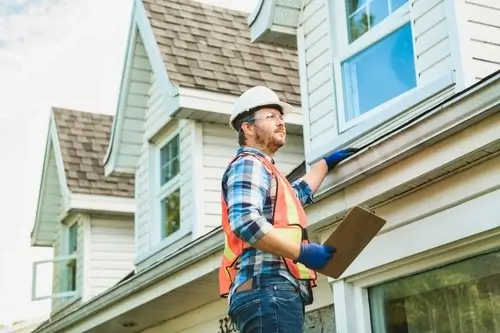
Buying a home is a thrilling journey filled with anticipation and, at times, uncertainty. As you approach the final stages of this journey, one critical step remains: the home inspection. This stage provides a vital opportunity to look beyond the surface and ensure that your new home is everything it appears to be.
Understanding the Importance of a Home Inspection
A home inspection is typically arranged by the buyer and should occur soon after your offer is accepted. This inspection happens within the timeframe stipulated in your contract, allowing you the chance to back out or renegotiate based on the findings. The purpose of the inspection is to protect you from any unexpected issues that might not be visible at first glance.
During the inspection, a professional inspector thoroughly examines the property, looking for hidden problems that could affect your purchase decision. It's highly advisable to attend the inspection yourself. Doing so not only gives you the chance to see potential issues firsthand but also allows you to ask questions and learn more about the home.
What to Expect During the Inspection
The inspector will follow a comprehensive checklist, evaluating various aspects of the property. Key areas of focus include:
- Roof and Foundation: The inspector will assess the roof's condition and the stability of the foundation, both of which are crucial to the home's structural integrity.
- Systems Check: Heating, cooling, plumbing, electrical, and air conditioning systems will be thoroughly inspected to ensure they are functioning correctly and safely.
- Water Damage and Insulation: The inspector will look for signs of water damage, assess insulation quality, and check that windows and doors are properly sealed.
- Exterior Elements: Features like porches, decks, and driveways are also evaluated to ensure they are in good condition.
- Basement and Attic: The basement is often a focal point for issues such as dampness or structural concerns, while the attic can reveal information about the home’s insulation, ventilation, and potential pest problems.
Interpreting the Inspection Report
After the inspection, you'll receive a detailed report that outlines the inspector's findings. This report may seem overwhelming at first, filled with technical terms and numerous details. However, it's important to remember that it's rare for a home inspection to be completely free of issues.
Focus on distinguishing between minor cosmetic concerns and more serious structural problems. Minor issues are usually easy to address and should not deter you from purchasing the home. On the other hand, significant problems may require further negotiation or could even be a dealbreaker, depending on the extent of the damage.
Deciding on Your Next Steps
Once you’ve reviewed the inspection report, you may need to revisit the negotiation table. If major issues are uncovered, you could use them as leverage to renegotiate the purchase price or request that the seller make repairs before the sale is finalized. Minor issues might be things you choose to address on your own after the purchase, allowing you to plan and budget accordingly.
The Final Stretch
The home inspection is an essential part of the home-buying process. It provides you with valuable information that can either reinforce your decision to move forward or prompt you to reconsider. Think of it as a crucial tool that helps you fully understand the condition of your prospective home, ensuring that your investment is sound and your future home truly is your sanctuary. Armed with this knowledge, you can proceed with confidence, knowing exactly what to expect as you move closer to making that house your home.
Ready to embark on your home-buying journey?
Let us guide you through every step, ensuring your investment is secure.

